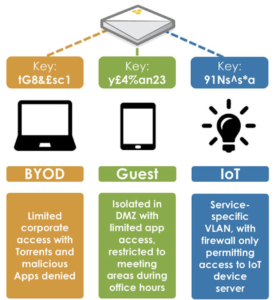VMware NSX News You Can Use – January 9, 2017
Happy New Year everyone. Here’s the first NSX News You Can Use of 2017.
- In his round-up of the “10 Coolest Software-Defined Networking Technologies of 2016,” CRN’s Mark Haranas features NSX, referring to the technology as popular because of its hardware agnosticism and strong security use case through micro-segmentation.
- TechTarget Contributor Brian Kirsch details the newly launched vExpert NSX program. He notes the program builds on the success of ourthe vExpert loyalty program, and that the program could stimulate customer interest in VMware’s networking and security offering.
- In an interview conducted last year with Fr. Robert Ballecer of TWiT’s This Week in Enterprise Tech program, Guido Appenzeller about how VMware “took the art of virtualization and turned it into something that is commonplace” through NSX.
Top VMware NSX News
- CRN: The 10 Coolest Software-Defined Networking Technologies Of 2016
- TechTarget: VMware NSX vExpert program the latest in network virtualization growth
- TWiT TV: TWiT Bits 3072 – Vmware NSX Explained
- Web Host Industry Review: What Networking Looks Like in 2017
- TechTarget: 2016 SDN trends: The year of the software-defined WAN
- TechTarget: Virtualization product winners and losers of 2016
- Virtualization Review: The Top 10 Virtualization Stories of 2016
- ITWorld Canada: Consider microsegmentation for Continue reading
10 Networking Startups To Watch In 2017
Check out these new vendors that aim to make a mark in networking.
Promoting cloud in a risk-averse organization
Our organization, like most large public bodies, is locked into formal bureaucratic procedures and, by general standards, is highly risk-averse. In addition, like other organizations of the United Nations System, it has a unique attribute which makes moving to the cloud a much greater leap than for most other organizations: UN System organizations enjoy a special status.
In the aftermath of World War II, countries negotiating the Charter for the future United Nations agreed the organization should be in a position to function without interference from any single Member State. For this reason, a regime of privileges and immunities was developed. It is this special legal regime that ensures UN organizations are immune from the jurisdiction of national courts, that their premises cannot be entered by national enforcement agencies without their consent, and that their archives – including their data – cannot be accessed without their agreement.
To read this article in full or to leave a comment, please click here
Plans for 2017
With January 6th the Christmas/New Year holidays are over even for most European countries, so it’s time to restart my blog and set some goals for 2017.
Webinars
2015 was year of SDN, 2016 was year of network automation, and 2017 is shaping up to be the year of the cloud.
Read more ...Aerohive’s Private Pre-Shared Key Technology
 A fairly common question I get asked when talking to people about Aerohive Networks is “what makes us different?” In other words, why should they choose Aerohive to replace their existing wireless vendor? It is a fair question. After all, plenty of vendors sell APs that can serve the most basic wireless needs. All of the vendors I compete with do a lot of the same things when it comes to general wireless.
A fairly common question I get asked when talking to people about Aerohive Networks is “what makes us different?” In other words, why should they choose Aerohive to replace their existing wireless vendor? It is a fair question. After all, plenty of vendors sell APs that can serve the most basic wireless needs. All of the vendors I compete with do a lot of the same things when it comes to general wireless.
One of the things I like to talk to potential customers about is Aerohive’s Private Pre-Shared Key(PPSK) technology. For some organizations, PPSK is not something they are interested in. Maybe they already have a pretty solid 802.1X implementation and don’t have a need for WPA2 Personal(pre-shared key) security on their wireless network. That’s perfectly fine in my book. I have other things I can always talk about with regard to an Aerohive solution. For quite a few organizations though, they see the advantage of PPSK over standard pre-shared key implementations and jump right in to using it. I wanted to briefly discuss what PPSK is and how it can be utilized with an Aerohive solution. No configuration screenshots or long demonstration videos. Just a basic Continue reading